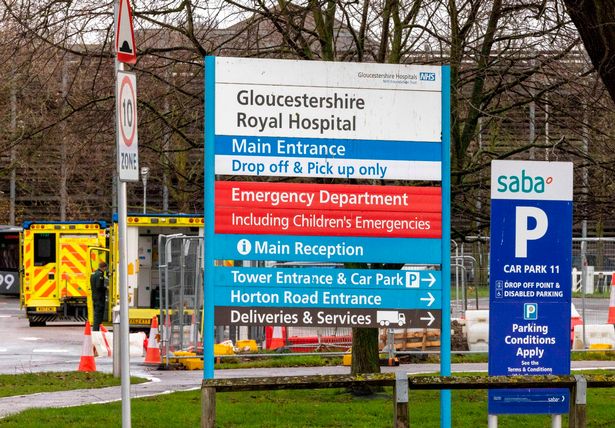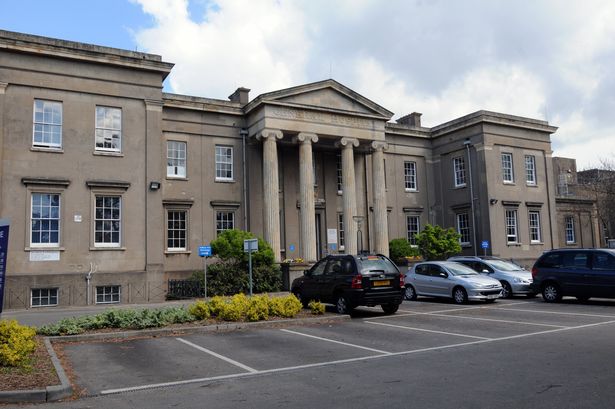‘This is about testing out new service models and ways of working’ There are changes in the way NHS Gloucestershire provides services in the county(Image: Getty)
There are changes in the way NHS Gloucestershire provides services in the county(Image: Getty)
The NHS in Gloucestershire has announced temporary changes to services, aimed at exploring the potential benefits of reorganising certain aspects to enhance patient care, experience, and outcomes, as well as boost efficiency.
These modifications related to community theatres and community beds and will be closely monitored throughout their implementation.
The alterations, including those affecting individual healthcare facilities, are temporary and their impact on patient care and learning will be evaluated.
Evaluation criteria will be agreed upon with partners prior to the implementation of these temporary service changes.
Dr Ananthakrishnan Raghuram (Raghu) MBE, Chief Medical Officer at NHS Gloucestershire, said: “It is important to stress that no plans have been made, or decisions made, about individual services, facilities or sites over the long term.
“This is about testing out new service models and ways of working. We look forward to reviewing the evaluation reports, including the views and experiences of patients.
“The reports will be shared publicly at the end of the trial periods. We will continue to work closely with the county’s Health Overview and Scrutiny Committee.”
The NHS in Gloucestershire explains the changes below
Community theatres
The NHS in Gloucestershire is trialling a new approach to community theatre services that will impact Cirencester, Stroud and Tewkesbury community hospitals.
Over the next six months, the concept of ‘Centres of Excellence’ will be tested, with the aim of consolidating specialist teams, equipment and best practices to potentially enhance patient care.
Tewkesbury will continue to handle Ophthalmology, ENT and Orthopaedic day cases.
Stroud will persist in carrying out Breast surgery, with plans to explore Urology surgery during the trial period.
Other specialties currently performed at the three community theatre sites will be centralised at either Gloucestershire Royal or Cheltenham General during the test period.
To facilitate this, theatre activity in Cirencester will be put on hold for the duration of the trial.
 Ambulances outside the A&E at the Royal Gloucestershire Hospital in Gloucester(Image: Rowan Griffiths / Daily Mirror)
Ambulances outside the A&E at the Royal Gloucestershire Hospital in Gloucester(Image: Rowan Griffiths / Daily Mirror)
The goal of this change is to utilise specialist staff and equipment more effectively by concentrating services in fewer locations, thereby reducing delays, last-minute cancellations and inefficiencies caused by resources being spread across multiple sites.
This shift could also provide staff with greater access to training and development opportunities, allowing them to become more proficient in their specialty, which could result in improved care and outcomes for patients.
During this trial, patients may need to travel to a different hospital for their treatment, but efforts will be made to minimise disruption and ensure appointments continue as smoothly as possible.
Patients will retain some choice regarding their treatment location. Following a six-month trial, we will assess the effectiveness of these changes, considering patient outcomes, staff feedback and service efficiency.
The evaluation findings, inclusive of patient and public feedback, will be presented upon completion of the trial. The commencement date for this temporary change will be confirmed shortly.
Community hospital beds, including a specialised complex care unit at Cirencester Hospital
Temporary tests of change are also being planned for community hospital beds, including a specialised complex care unit at Cirencester Hospital.
These changes are being tested by the NHS in Gloucestershire in response to significant healthcare challenges posed by an ageing population and increasing numbers of individuals living with multiple long-term health conditions.
In Gloucestershire, both the number of people and the duration of their stay in community hospital beds exceed the national average.
On average, patients in Gloucestershire spend approximately 33 days in a community hospital for general rehabilitation care.
This situation presents us with an opportunity to reconsider how our community hospital services could be utilised more efficiently to meet local needs.
We aim to ensure that individuals receive the most suitable and high-quality care to meet their needs.
We are implementing two temporary tests of change, adopting an approach that will allow us to trial and evaluate new ways of working for a set period.
The first temporary test of change pertains to services provided at Cirencester Hospital for patients with more complex needs.
 Cheltenham General Hospital(Image: Gloucestershire Echo)
Cheltenham General Hospital(Image: Gloucestershire Echo)
At present, the two intermediate care wards at Cirencester Hospital have 49 beds, used to provide care to individuals who require rehabilitation support, often following a stay at Cheltenham General or Gloucestershire Royal Hospitals, before they can return home. These wards comprise several bays and a few single rooms.
The temporary test of change will restructure the ward space to maintain one intermediate care ward of 28 beds, but also establish a specialised 15-bed complex care unit to offer rehabilitative care to patients with a higher complexity of physical and mental health needs. To accomplish this, one of the existing wards in Cirencester will be temporarily closed and the staff team relocated to a unit on the same site.
Staff will possess the specialist skills and expertise needed to provide higher levels of care to meet the needs of the patients. We also hope that providing care that more specifically meets the needs of patients will help to reduce the length of time they need to stay in hospital.
It is hoped that an overall reduction in lengths of stays would offset the minor reduction in the number of beds.
The number of patients receiving community hospital care will remain unchanged, despite the proposed changes. The second alteration involves utilising ten existing community hospital beds to provide short stays for individuals who have deteriorated at home and require a more extensive assessment and review by a multi-disciplinary team.
Each of the county’s community hospitals will house one or two of these ‘step-up’ beds, offering a higher level of care and allowing patients to stay closer to their homes. These beds will supplement the existing ten Community Assessment Treatment Unit beds at Tewkesbury Hospital, which cater to acutely unwell adults experiencing a flare-up in a long-term health condition such as heart failure.
This temporary test of change will not decrease the total number of community hospital beds across the county; it will merely alter how ten of these beds are utilised. Both of these tests of change are set to commence at the end of 2025 for a nine-month period, with the first part of the evaluation scheduled for the end of May 2026.
What do you think of the temporary changes? Let us know in the comments below
